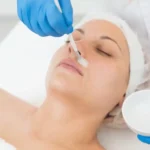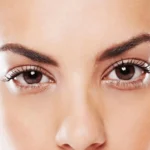THE WHAT? Unilever has reported a Q3 sales growth of 2.5 percent, up on the 2.2 percent analyst predictions. However, it warned of further inflation next year due to surging energy and other costs.
THE DETAILS The personal care giant maintained its full-year guidance, with Q3 growth boosted by strong demand in its ‘priority markets’ of U.S., China, India and Turkey. South East Asia reported a volume decline in the quarter, impacted by COVID-19.
Deodorants and skin cleansing products outperformed as consumers were allowed out following lockdown measures, with a 4.1 percent increase in prices offsetting a 1.5 percent decline in volumes.
The company’s e-commerce channel grew 38 percent and now represents 12 percent of total sales.
According to a press release, “Prestige Beauty and Functional Nutrition each grew double digit and we completed the acquisition of digitally-native skin care brand Paula’s Choice.”
THE WHY? While Unilever managed to beat industry expectations, the company joins its competitors in falling foul of soaring raw material prices and transport costs, which is ultimately set to continue over the next 12 months.
Unilever plans to continue offsetting the costs with price rises and other measures.
The company said, “Cost inflation remains at strongly elevated levels, and this will continue into next year. We have and will continue to respond across our categories and markets, taking appropriate pricing action and implementing a range of productivity measures to offset increased costs. We continue to expect that we will deliver in line with our margin guidance of around flat for the full year.”
Aesthetic medicine products are developed and regulated to meet stringent safety and efficacy standards. They are typically administered by trained healthcare professionals such as dermatologists, plastic surgeons, and specialized nurses in clinical settings. These products aim to provide effective solutions for cosmetic enhancement, skin rejuvenation, and overall aesthetic improvement, contributing to both physical appearance and self-confidence.
Key categories of aesthetic medicine products include:
-
Injectables: This category includes products such as dermal fillers, botulinum toxins (e.g., Botox), and collagen stimulators. These injectables are used to smooth wrinkles, add volume, and improve facial contours.
-
Skin Rejuvenation Treatments: Products like chemical peels, microdermabrasion systems, and laser devices are used to improve skin texture, reduce pigmentation irregularities, and enhance overall skin tone.
-
Skincare Products: These include medical-grade cleansers, moisturizers, serums, and topical treatments containing active ingredients like retinoids, antioxidants, and growth factors. They are formulated to address specific skin concerns such as acne, aging, and hyperpigmentation.
-
Hair Restoration Products: Medical treatments and products designed to promote hair growth and treat conditions such as male and female pattern baldness.
-
Body Contouring and Fat Reduction: Devices and products used for non-surgical body sculpting, such as cryolipolysis (cool sculpting) devices and injectable lipolytics.
-
Cosmeceuticals: High-performance skincare products that bridge the gap between cosmetics and pharmaceuticals, often containing potent ingredients with proven clinical benefits.
-
Wound Care and Scar Management: Products like silicone sheets, gels, and advanced wound dressings used to improve healing and reduce the appearance of scars.





